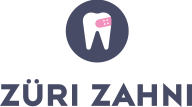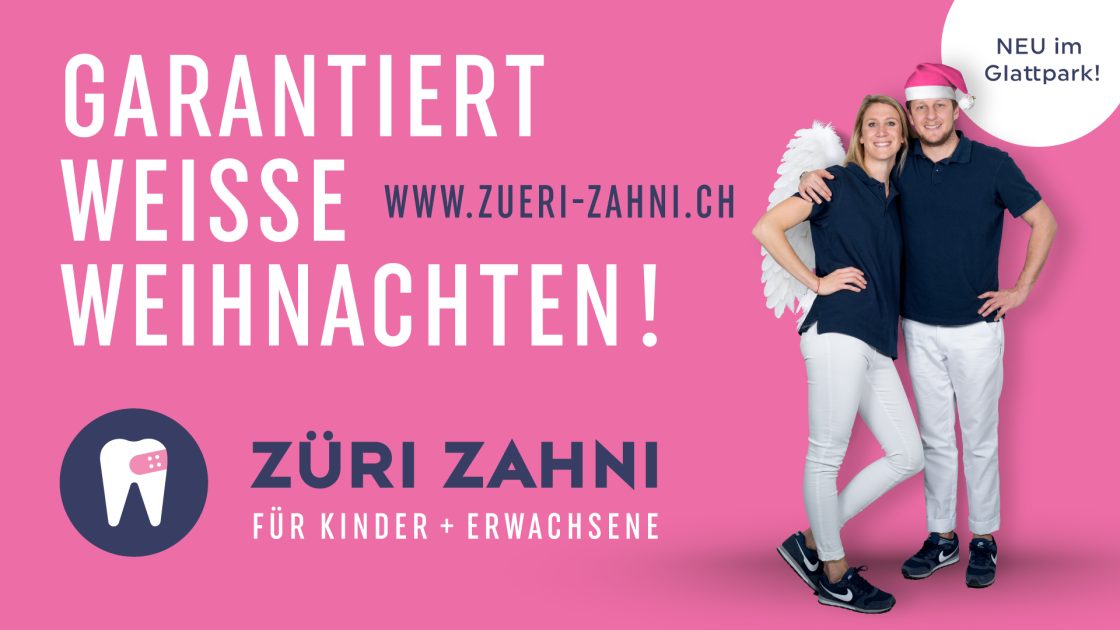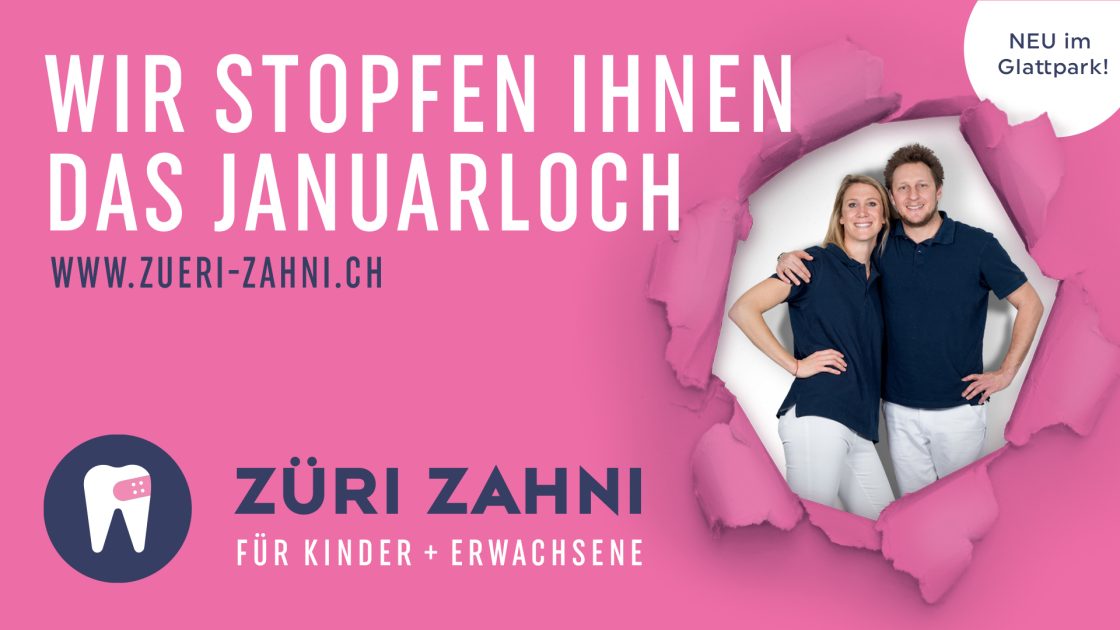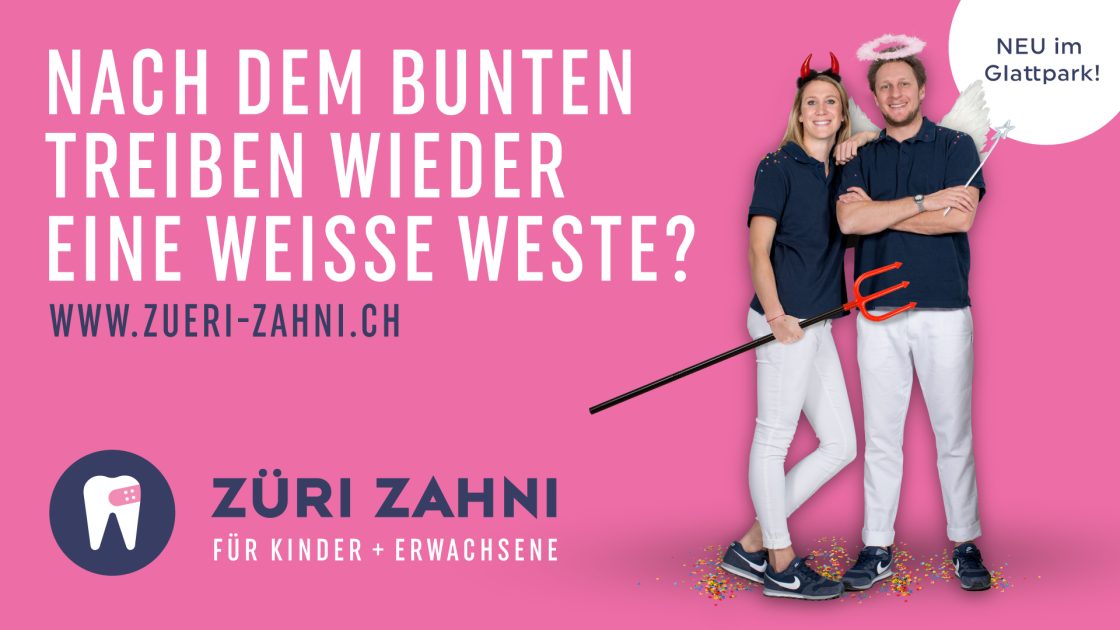Dental Hygiene at Züri zahni
Why Choose Dental Hygiene at Züri Zahni in Glattpark, Zurich?
Gentle Methods
We have the latest infrastructure and equipment to provide a dental cleaning that is both effective and gentle. Using a soft sandblasting nozzle and a fine ultrasonic tip, we remove tough deposits and stubborn stains, achieving excellent results while preserving your teeth.
Entertainment/TV
A dental cleaning typically lasts between 45 and 60 minutes. During this time, you can relax and enjoy your favorite series or movie on the ceiling-mounted TV. With noise-canceling headphones, you won't even notice the sounds of the treatment – the time will fly by.
Oral Hygiene Instruction and Automatic Recall
To ensure your oral health is maintained in the long term, we provide personalized instructions for optimal daily oral care. Our automatic recall system also reminds you of your next appointments, so you never miss a cleaning and can keep your dental health in check.
FIND OUT WHO WE ARE IN THIS SHORT VIDEO
We Offer the Full Range of Dental Hygiene Services
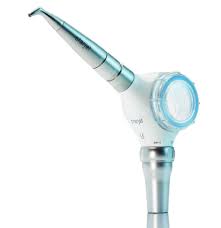
Air Polishing Device
Air polishing, also known as Airflow or Air-Polishing, is a modern technique for professional dental cleaning. It uses a fine powder-water jet that gently targets tooth surfaces, making it effective at removing plaque and stubborn stains without harming the enamel.
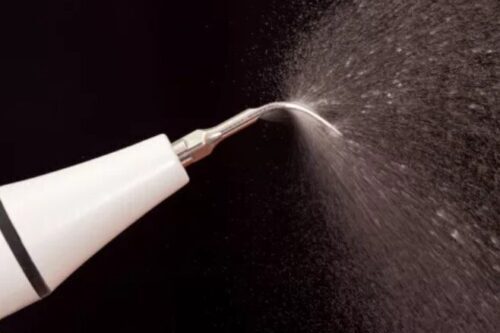
Ultrasound
Ultrasound cleaning is a trusted method for removing tartar and established plaque. Using high-frequency vibrations, tartar is gently loosened, which is particularly effective for larger tartar build-ups. This technique is gentle and ensures a thorough cleaning.
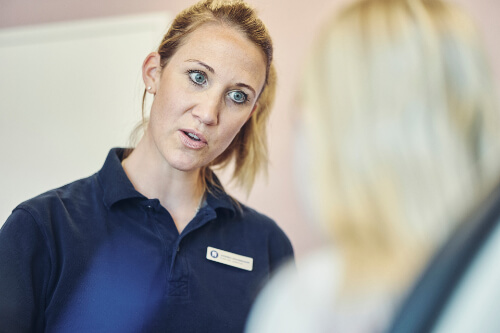
Tongue Cleaning
Comprehensive oral hygiene also includes cleaning the tongue, as it can harbor large amounts of bacteria that cause bad breath. Our dental hygienists use special suction tips and tongue gel to gently and effectively remove bacteria and deposits from the tongue, contributing to fresh breath.
WHAT OUR CUSTOMERS SAY ABOUT US
AS SEEN ON:
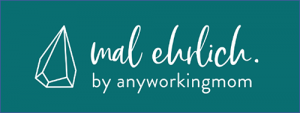
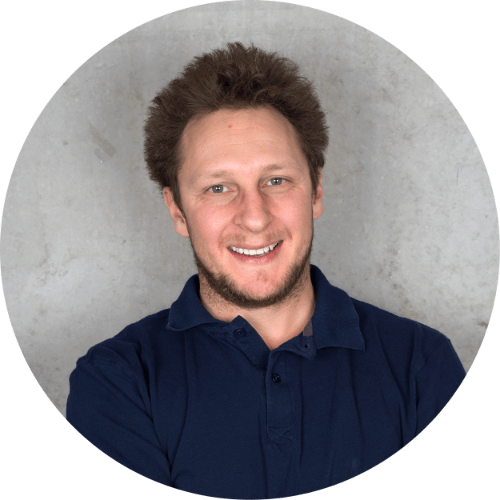
LET OUR EXPERTS ADVISE YOU
My name is Adrian Cano, and I am responsible for the Dental Hygiene and Preventive Care at Züri Zahni. Together with our experienced team of dental hygiene professionals, including prophylaxis assistants and dental hygienists, we are well-equipped to provide you with a thorough, personalized dental cleaning tailored to your needs.
With the latest technology and individual care tips, we help you optimize your daily oral hygiene routine, keeping your teeth healthy and beautiful in the long run. We work closely with you to understand your personal needs and offer you a comfortable and customized treatment.
Schedule a professional dental cleaning appointment at Züri Zahni and discover how pleasant and effective dental hygiene can be. We look forward to helping you achieve a fresh and radiant smile!
Questions & Answers
Professional teeth cleaning is part of dental hygiene. This includes the removal of plaque and tartar on tooth surfaces above the gum line. Then, interdental spaces are cleaned. A polishing of all tooth surfaces concludes the treatment. This type of teeth cleaning belongs in the competence area of prophylaxis assistants.
Dental hygiene further removes plaque and tartar in periodontal pockets and below the gum line. Only dentists and specialized dental hygienists practice this type of teeth cleaning.
Prophylaxis is the term for all measures that help prevent diseases. This includes daily dental care and hygiene at home as well as regular professional teeth cleaning and dental hygiene.
The costs of our preventive care depend on the extent of treatment required and are calculated in a clearly structured manner according to the type of treatment.
For healthy periodontal conditions, we offer a flat rate of CHF 190 (PA) or CHF 230 (DH) for one session.
For periodontitis treatment with pocket measurement, billing is based on time and individual services in accordance with the SSO tariff.
Age-dependent flat rates apply for children:
- up to 6 years CHF 95
- 6–12 years CHF 135
- 12 years and older CHF 190 (same as adults, without braces)
For fixed appliances, prophylaxis costs CHF 135 (good oral hygiene) or CHF 190 (poor oral hygiene or additional work).
In exceptional cases involving heavy plaque build-up, subgingival tartar or very poor oral hygiene, a second session may be necessary – e.g. in two stages (upper/lower jaw) or divided between PA and DH. In such cases, the corresponding flat rate will be charged again for the additional session.
We recommend an appointment for professional teeth cleaning in the form of dental hygiene once a year. However, depending on oral hygiene or dental health, up to four appointments per year may be necessary.
Despite good oral hygiene, there are places that are difficult to reach in daily cleaning at home and so the build-up of plaque and tartar cannot be prevented.
If your oral hygiene is inadequate, you are prone to tartar formation or deposits of discoloration, the position of your teeth makes daily oral hygiene difficult, or you suffer from gum disease or inflammation of the gums, then we recommend having dental hygiene appointments two to four times per year.
Plan for an hour for your dental hygiene visit.
This is what happens during a dental hygiene procedure:
- First, we remove tartar and discoloration above and below the gum line and in periodontal pockets either mechanically or with an ultrasonic scaling instrument.
- Then, we use a powder blaster (Air-Flow by EMS) to remove soft plaque and remaining discoloration. Often, we also use a small brush head with a course abrasive paste. Subsequently we clean interdental spaces with floss or interdental brushes.
- In a last step, we polish all teeth with a fine-grained abrasive paste until the tooth surfaces gleam.
- To conclude the treatment, we brush all tooth surfaces with fluoride varnish or gel in order to strengthen the enamel and support prophylaxis.
We recommend that you do not eat or drink for at least an hour after your dental hygiene visit.
We’d gladly advise you on your oral hygiene and daily dental care to acheive the best possible oral hygiene together.
Dental hygiene is considered very low-risk.
If you have a congenital heart (valve) defect, we suggest you discuss with you dentist and your general physician whether antibiotic shielding is necessary. It is possible for bacteria to enter your blood stream through the mucous membranes and cause an infection of the heart valve or inner membrane of the heart. Depending on the type of heart defect or past surgeries it’s necessary to take antibiotics an hour before your visit to the dentist. This will eliminate any bacteria that reaches your blood stream during the procedure.
Please inform your dentist or dental hygienist if you take blood-thinning medications, so they can correctly interpret excessive bleeding during treatment.
We advise adults to brush their teeth two to three times a day with a toothpaste containing fluoride. Brushing after breakfast, lunch and dinner yields the best results.
You should brush your child’s teeth once a day in the first year, twice a day in the second year and three times a day from their third year on. For children under the age of six we recommend a toothpaste with reduced fluoride-concentration. Children under six don’t always manage spitting out toothpaste after brushing their teeth.
Thorough tooth brushing takes about three minutes and should always be done systematically in the same order.
For this, you don’t need to use toothpaste.
Sonic toothbrushes have an oblong brush head and create a high-frequency vibration through an electric transducer. These vibrations transfer to the brush head and loosen plaque as well as flush out interdental spaces.
